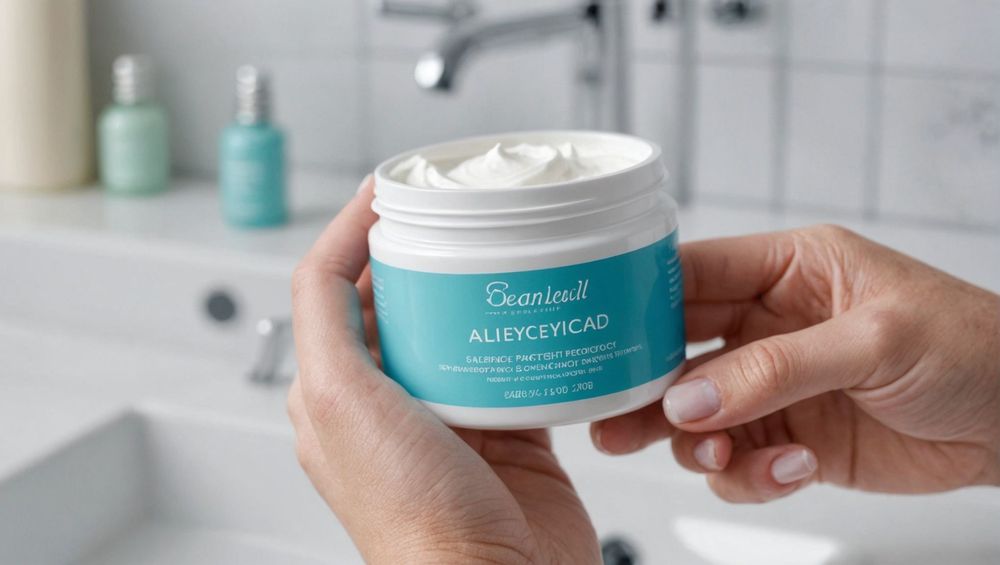Adult acne can be frustrating and persistent, often leaving individuals wondering why they still experience breakouts despite their best skincare efforts. Several factors contribute to this ongoing issue, and understanding these reasons can empower you to tackle acne effectively. In this article, we will explore four key reasons you may still be breaking out in adulthood and offer insight into how to address each of these concerns.
1. Hormonal Fluctuations

One of the leading causes of adult acne is hormonal fluctuations. These hormonal changes can be triggered by various factors, including menstrual cycles, pregnancy, and hormonal disorders like polycystic ovary syndrome (PCOS). Hormones such as androgens increase oil production in the skin, which can lead to clogged pores and, consequently, breakouts.
To manage hormonal acne, consider the following approaches:
- Consult a healthcare professional: A doctor can evaluate your hormonal levels and suggest appropriate treatment options.
- Maintain a balanced diet: Incorporate foods rich in omega-3 fatty acids, vitamins, and antioxidants to help regulate hormones.
- Practice stress management: Stress can exacerbate hormonal imbalances, so consider yoga or mindfulness practices.
- Utilize topical treatments: Products containing ingredients like retinoids or salicylic acid can help prevent breakouts.
2. Stress and Lifestyle Choices

Another significant factor contributing to adult acne is stress and lifestyle choices. High-stress levels can increase cortisol production, which in turn can lead to increased oil production in the skin. Additionally, lifestyle factors such as poor sleep, lack of exercise, and unhealthy eating habits can all contribute to the worsening of acne.
Here are actionable tips to help manage stress and improve your lifestyle:
- Prioritize sleep: Aim for at least 7-8 hours of quality sleep each night.
- Engage in regular physical activity: Exercise can reduce stress levels and improve overall skin health.
- Stay hydrated: Drinking plenty of water can help keep your skin healthy and hydrated.
- Limit processed foods and sugars: A diet high in these can exacerbate inflammation in the body.
3. Inadequate Skincare Routine
An often overlooked reason for persistent adult acne is an inadequate skincare routine. Many individuals fail to establish a consistent regimen that addresses their skin type and unique concerns. Using too many harsh products can strip the skin of its natural oils, leading to a cycle of overproduction and potential breakouts.
To enhance your skincare routine, consider these steps:
- Determine your skin type: Understanding whether your skin is oily, dry, combination, or sensitive can guide your product choices.
- Cleanse daily: Use a gentle cleanser suited for your skin type twice a day to remove dirt and excess oil.
- Moisturize appropriately: Even oily skin needs hydration; opt for lightweight, non-comedogenic moisturizers.
- Incorporate targeted treatments: Products with ingredients like benzoyl peroxide or tea tree oil can be effective against acne.
4. Genetics
Genetics also plays a significant role in the experience of adult acne. If acne-prone skin runs in your family, you may find yourself dealing with similar issues. Genetic predispositions can influence factors such as skin cell turnover, oil production, and the body’s inflammatory response.
While genetics cannot be changed, you can control how you care for your skin. Here are some strategies:
- Consult a dermatologist for personalized treatment options, including prescription medications.
- Stay consistent with your skincare routine; even small adjustments can lead to improvement.
- Consider professional treatments: Options such as chemical peels or laser therapy may benefit acne-prone skin.
- Monitor skin changes closely and be proactive in addressing potential breakouts.
Conclusion
Understanding the reasons behind adult acne is crucial for developing a successful treatment strategy. Hormonal fluctuations, stress and lifestyle choices, inadequate skincare routines, and genetics all contribute to this frustrating condition. By taking informed steps toward managing these factors, you can achieve clearer and healthier skin.
FAQs
- Can adult acne be treated with over-the-counter products?
Yes, many over-the-counter treatments like benzoyl peroxide and salicylic acid can be effective for managing adult acne. - Is it normal to experience acne in my 30s or 40s?
Yes, adult acne is common and can occur at any age due to various factors. - How can I reduce hormonal acne?
Regular exercise, maintaining a balanced diet, and consulting a healthcare professional can help regulate hormones. - What skincare ingredients should I avoid if I have acne-prone skin?
Avoid heavy creams, comedogenic oils, and irritating ingredients that may clog pores and worsen breakouts. - When should I see a dermatologist for acne concerns?
If your acne persists despite your best efforts or worsens, it’s advisable to seek professional advice for targeted treatments.
